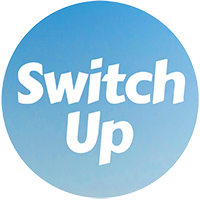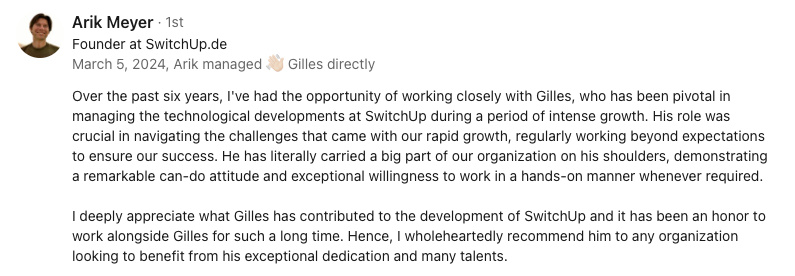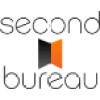Abstract:
Blockchain technology, often associated primarily with cryptocurrencies, holds a broader spectrum of applications that revolutionize various industries far beyond just finance. This exploration reveals how blockchain serves as the backbone for smart contracts, ensuring trust and transparency in transactions without the need for intermediaries. It highlights its critical role in transforming supply chain management by providing real-time, tamper-proof records, enhancing traceability, and reducing fraud. The potential of blockchain in safeguarding digital identities and personal information in an increasingly digital world is underscored, showcasing its capability to offer a more secure, efficient, and user-controlled means of managing digital identities. In healthcare, blockchain's application in managing and securing medical records, alongside ensuring the integrity of pharmaceutical supply chains, is outlined, illustrating its capacity to improve patient care and combat counterfeit drugs. Finally, the summary addresses blockchain's emerging role in decentralized finance (DeFi) and tokenization, enabling more inclusive financial services and innovative asset management strategies. This breadth of applications underscores blockchain's versatility and its capacity to foster transparency, security, and efficiency across multiple sectors.
Introduction to Blockchain's Versatility
When people hear "blockchain," many immediately think of Bitcoin and other cryptocurrencies. However, the technology's influence stretches far beyond virtual currencies, impacting industries as diverse as healthcare, finance, and even art. Initiating from a humble thought experiment over a decade ago, blockchain technology now secures contracts and sensitive medical information, facilitates complex international transactions, and even helps track the origin of luxury goods. This wide range of applications showcases blockchain’s ability to transform not just how we handle money but almost every aspect of modern life.
As a Chief Technology Officer, I have observed first-hand how businesses can harness blockchain's unique properties—decentralization, immutability, and transparency—to solve problems in ways we previously only dreamed of. Its capacity to serve as a public ledger can make business operations more efficient, for example, by using smart contracts where traditional contracts would be too slow or prone to human error. There's also a growing trend in 'easing the traceability' in supply chain management.
Healthcare and personal security benefit significantly from this technology as well. By securing sensitive patient data and ensuring it's only accessible to the right people, blockchain solutions can potentially save lives and prevent data breaches. Meanwhile, the explosion of decentralized finance (DeFi) systems exemplifies blockchain's growing impact on personal and institutional finance. The examples are profound and expanding daily, promising a future where blockchain technology is a fundamental tool in solving complex, global challenges.
As we explore further into the article, we will discover just how nuanced the applications of blockchain can be across different sectors, establishing solid foundations for future innovations. The aim here isn't just to inform but to inspire by laying out the concrete and potential uses of blockchain to spark possibilities in your own field or curiosity.
Applications in Business: Smart Contracts and Supply Chain Management
Smart Contracts: Revolutionizing Transactions
In my role overseeing technology strategy, I've witnessed the rising tide of smart contracts reshaping the business landscape. Smart contracts are self-executing contracts with the terms of the agreement directly written into code. What sets them apart is their ability to ensure trust and transparency without the need for intermediaries. Thanks to blockchain, once a contract is executed, its details are stored in a decentralized ledger, making the agreement tamper-proof and perpetually accessible to all involved parties.
Consider, for example, the world of real estate transactions. Here, smart contracts can automatically transfer property ownership once conditions, such as receiving payment, are met, and do so transparently and irreversibly. For anyone who has ever suffered through the traditionally slow and paperwork-heavy processes, the speed and simplicity enabled by smart contracts is nothing short of a breath of fresh air.
Enhancing Supply Chain Traceability
Blockchain's impact extends to supply chain management, where it introduces equally impressive enhancements. The technology offers businesses cutting-edge ways to trace product journeys from manufacturer to consumer. Each step in the supply chain is recorded on the blockchain, providing a real-time, tamper-proof record. This upgrade not only aids in traceability but significantly reduces opportunities for fraud, ensuring that the process is as clean as a whistle.
One standout example is the adoption of blockchain by major global retailers for tracking food products. They can track a steak back to the cow it came from, which is not only fascinating but incredibly useful in scenarios like health safety recalls. What's more, consumers increasingly desire transparency about the products they buy — from the labor standards observed to the environmental impacts considered. Blockchain empowers businesses to meet these demands with verifiable proof, fostering a deeper trust between enterprises and their customers.
On a personal note, I've been particularly involved in deploying blockchain for monitoring the distribution chain of high-value goods such as pharmaceuticals. In this field, ensuring the authenticity and secure handling of products is not just beneficial—it's critical. Blockchain's real-time recording capabilities make it possible to spot discrepancies that could indicate tampering or counterfeit goods immediately, potentially saving lives by preventing unsafe products from reaching consumers.
The profound improvements seen in these cases barely scratch the surface of blockchain's potential across various industries. By automating key elements of contractual and logistical workflows, blockchain doesn't just streamline processes—it reinvents them. The benefits are clear: enhanced efficiency, strengthened security, and an overall boost in consumer confidence and business credibility. It's truly remarkable what we can accomplish when we combine traditional business principles with cutting-edge technology.
Impact on Personal Security and Healthcare
Enhancing Personal Security with Blockchain
In my role as a Chief Technology Officer, I've observed how blockchain is pioneering enhancements in personal security. We often hear about data breaches and identity theft in the news, something that can feel a bit like a sci-fi horror movie but is an all-too-real problem. Blockchain offers perhaps one of the most impressive digital identities and information safeguards, placing the power firmly in the hands of users. The decentralized nature of blockchain means that no single entity has control over the entire dataset, which inherently makes the data harder to compromise.
One key application of blockchain in personal security is in managing digital identities. By allowing individuals to store their personal information securely on blockchain platforms, people can control who has access to their data and under what circumstances. It's a bit like having a highly secure, digital fortress where you're the king or queen, deciding who can cross the drawbridge.
For instance, I had the pleasure of working on a project where blockchain was used to create digital passports for online transactions. This innovation not only streamlined online identity verification processes but also significantly reduced the potential for identity theft. The access to one's digital identity required cryptographic keys, which are nearly impossible for hackers to duplicate without authorization. It's like giving a hacker a puzzle with a million pieces—but hiding half of them.
Revolutionizing Healthcare with Blockchain
Transitioning into healthcare, blockchain stands out by securely managing medical records, ensuring patient data integrity, and fortifying pharmaceutical supply chains. Imagine being able to seamlessly integrate an ecosystem where patient records are immediately accessible to authorized personnel, yet securely locked away from any prying eyes—that's blockchain in healthcare.
An interesting case study in this regard involves a blockchain system we helped develop to manage patient records in a large hospital network. This system enabled healthcare providers to access patient information quickly while ensuring data accuracy and protection. In situations where a few seconds can dictate health outcomes, such rapid access to accurate medical records has been nothing short of life-saving.
Moreover, blockchain plays a crucial role in the pharmaceutical supply chain, ensuring that every pill, syringe, or bottle is what it purports to be—genuine and safe. As we wade through the murky waters of counterfeit drugs and tampered products, blockchain provides a verifiable, transparent, and tamper-proof method of tracking drugs from the manufacturer to the patient. I’ve heard experts say—and I agree—that blockchain could be to medicine what penicillin was to bacteria:
- Preventing Counterfeit Drugs: The ability to track the origin and journey of pharmaceuticals has been instrumental in combatting counterfeit medicines. This not only protects brands but, more importantly, saves lives.
- Enhancing Patient Care: Blockchain can speed up and refine the diagnosis, increase treatment efficacy, and ultimately lead to a more rapid recovery by ensuring that all medical data is accurate and up-to-date.
Additionally, feedback from healthcare professionals who have used this technology sings praises about how streamlining data access and security improves operational efficiencies and patient care. The seamless integration of blockchain into medical storage systems is revolutionizing how healthcare data is interacted with, paving the way for innovations that were once constrained by administrative bottlenecks and security concerns.
Viewpoints from industry experts underscore blockchain's potential to radically enhance patient care delivery. For example, Dr. Linda Wright, a healthcare innovation strategist, recently noted, "Blockchain could dramatically reduce healthcare fraud, give patients greater control over their data, and lay the foundation for truly personalized healthcare services."
In sum, the impacts of blockchain on personal security and healthcare are profound, reshaping not merely sectors, but the very fabric of how security and care are perceived and delivered. By integrating blockchain into these areas, we provide not just a solution, but a monumental upgrade to the foundations of these critical services.
Decentralized Finance and the Future of Blockchain
The Rise of Decentralized Finance (DeFi)
In my tenure as a Chief Technology Officer, I've been privileged to witness firsthand the meteoric rise of decentralized finance, or DeFi. This innovative sector, established on blockchain technology, is transforming traditional financial services into open, transparent platforms that are accessible to anyone with an internet connection. Through DeFi, blockchain not only democratizes financial services but does so with the flair of cutting out the middleman, meaning bye-bye to traditional banking dependencies.
For example, DeFi platforms allow users to lend, borrow, trade, and earn interest on their assets without the need for a bank. Think of it as having a financial Swiss Army knife in your pocket, only much more powerful. The beauty of DeFi lies in its ability to operate without central oversight, using smart contracts on blockchains like Ethereum to execute transactions securely and transparently. This advancement paves the way for a financial system where markets are always open, and personal wealth management is truly in the hands of the individual, rather than gatekept by daunting institutions.
The Tokenization of Everything
I'm equally excited about another blockchain manifestation: tokenization. This process converts rights to an asset into a digital token on the blockchain. Essentially, anything of value can be tokenized, from real estate to artwork, making illiquid assets surprisingly liquid. You could, for instance, own a slice of an expensive painting or a piece of real estate in another continent, all recorded and managed through blockchain.
Tokenization not only makes investments more accessible but also more granulated, providing highly flexible management and trading of assets. This technology truly shines when you consider its ability to fragment ownership of high-value items, allowing more people to invest in assets previously out of reach. For someone who’s often joked about owning the Mona Lisa’s smile, tokenization makes it not entirely implausible.
This capability to democratize asset ownership can result in profound changes in investment and asset management, making diversified portfolios more achievable for the average person. And, since all transactions occur on the blockchain ledger, every token movement is traceable, secure, and instant—eliminating a sackful of bureaucratic red tape.
Envisioning Blockchain's Expansive Potential
Looking to the horizon, the potential applications for blockchain technology are as broad as they are profound. Beyond just financial realms and asset management, blockchain could significantly impact voting systems, real estate land registry, intellectual property rights, and even governmental operations. The technology offers a framework for transparency and efficiency that can revolutionize public trust and corporate responsibility.
Moreover, as continuous breakthroughs in blockchain tech emerge, the enlargement of its applications will likely invade sectors we haven’t even considered yet. For instance, integrating AI with blockchain could enhance predictive models in financial services or improve supply chain logistics by autonomizing tracking and managing processes more intelligently.
The integration of blockchain throughout various industries not only heralds a new dawn of operational transparency but also a renaissance in how we view security and trust in the digital age. As a technologist and strategist, I am bullish on the promising future of blockchain. Its journey from a digital ledger for cryptocurrencies to a cornerstone technology for countless applications shows a trajectory that is anything but linear—it’s exponential.
In essence, blockchain stands not solely as a technology of today but as a foundational element for tomorrow. It propels us to rethink not just how we conduct transactions but how we can foster global societal improvements. And for someone who likes to speculate about the future—especially one rich with opportunities and innovations—it's quite a thrilling ride!














